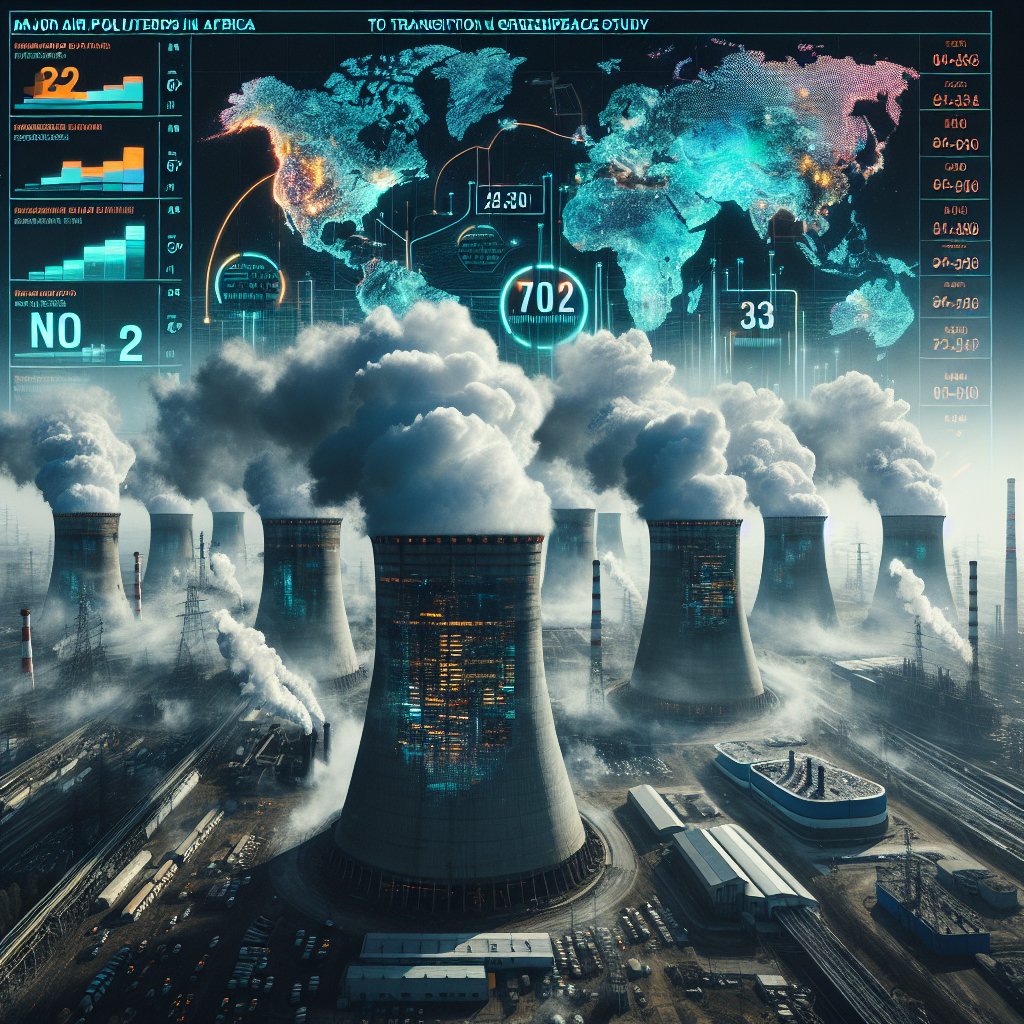Image created by AI
South Africa's Eskom Among Top NO2 and SO2 Polluters Globally, Reveals Greenpeace Study
A recent study by Greenpeace, an internationally recognized environmental advocacy group, has cast a harsh spotlight on South Africa's struggle with industrial air pollution, pointing out a worrisome concentration of toxic emissions stemming primarily from coal-fired power plants. Titled "Major Air Polluters in Africa," the Greenpeace report has uncovered that many of the globe's top spots for hazardous nitrogen dioxide (NO2) and sulfur dioxide (SO2) emissions are located in South Africa and are largely attributable to Eskom Holdings SOC Ltd., the state power utility.
Eskom's coal plants are now identified as five of the biggest single sources of NO2 emissions worldwide. Notably, the utilities giant is also responsible for two of the most egregious SO2 emitting sites. Sasol Ltd., a South African giant in petrochemicals, secures a position alongside Eskom with one of the top ten NO2 emission sites on the planet.
The reliance on coal for power generation is entrenched in the South African energy landscape, with over 80% of electricity produced through this fossil fuel. This energy strategy, while bolstering the nation’s electric grid, has led to air pollution levels that compete with some of the highest internationally. Despite having regulatory emission standards, their enforcement in South Africa is noted as comparatively lax, especially when stacked against the stringent policies of other major polluters such as China and India.
Greenpeace's findings also bring attention to the fact that Eskom's influence on air quality is not confined to South Africa alone. Across the African continent, Eskom operates an overwhelming majority of the top NO2 emitting sites. An Ivory Coast power company is the single exception outside of South Africa among the top ten NO2 emission sources in Africa.
Additionally, countries like Zimbabwe, Mali, Morocco, and Egypt have their own challenges with SO2 pollution, having power plants featured in the top ten African sources of SO2 emissions as reported by Greenpeace.
The environmental implications are dire, tying the high emission sites to severe health issues such as respiratory diseases, heart attacks, strokes, and increased risks of stillbirths. NO2 and SO2 not only affect human health but also contribute to environmental degradation such as acid rain, leading to soil poisoning and decreased agricultural productivity.
Eskom did not immediately respond to inquiries about Greenpeace's study, a silence that might augur the need for a heightened national and international dialogue on sustainable energy practices.
Greenpeace, widely known for its activism against environmental decay, continues to advocate for a global transition to cleaner energy sources. Their study puts forward a stark reminder of the urgent need for change in South Africa and across the continent.










